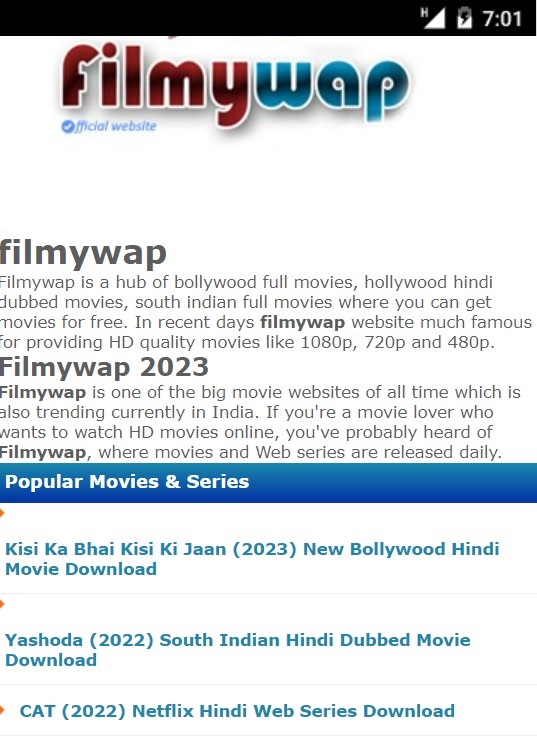Is there a legitimate way to access movies online without violating copyright laws? A bold statement supporting this question is that while some websites claim to offer free movie downloads, they often operate in legal gray areas. Understanding the difference between authorized and unauthorized platforms is crucial for consumers who want to enjoy entertainment responsibly.
The internet has revolutionized how we consume media, offering countless options for streaming movies and TV shows from various parts of the world. Among these platforms, Filmywap.com has gained significant attention as a repository for Bollywood, Hollywood, South Indian films, and more. However, its operations have been controversial due to allegations of distributing pirated content. Despite this, it remains popular among users seeking free access to movies in different languages and genres.
| Bio Data & Personal Information | Career & Professional Information |
|---|---|
| Name: Filmywap | Website Type: Movie Download/Streaming Platform |
| Established: Unknown (circa early 2010s) | Primary Focus: Offering movies across multiple languages including Hindi, English, Tamil, Telugu, etc. |
| Location: Operates Globally | Content Offered: Movies, Web Series, Music Videos |
| Contact: Not Available Publicly | Legal Status: Allegedly Engages in Copyright Infringement |
| For more information, visit Last.fm. | |
Platforms like Filmywap provide an extensive collection of movies, catering to diverse audiences with varying preferences. Users can find everything from classic Bollywood films to the latest Hollywood blockbusters. The appeal lies in the convenience of accessing high-quality content without subscription fees. However, the legality of such services remains questionable, as they often bypass traditional distribution channels.
One notable aspect of Filmywap is its ability to adapt to changing user demands. Over time, it has expanded its offerings to include not only movies but also web series and music videos. This versatility ensures that visitors remain engaged and continue returning for new releases. Additionally, the site's interface is designed to be user-friendly, allowing even novice internet users to navigate effortlessly.
In contrast, authorized streaming services invest heavily in securing rights to distribute content legally. These platforms prioritize customer experience by providing features such as ad-free viewing, offline downloads, and personalized recommendations. While subscriptions may come at a cost, they support filmmakers and production houses financially, ensuring continued creation of quality content.
A recent event highlighted the importance of respecting intellectual property rights when consuming digital media. The Library of Congress hosted a discussion featuring actors Zachary Levi and Zooey Deschanel, promoting their new film Harold and the Purple Crayon. Such initiatives underscore the value of supporting original works through official channels rather than relying on unauthorized sources.
Despite its popularity, Filmywap faces criticism for contributing to piracy issues within the entertainment industry. Proponents argue that it democratizes access to global cinema, particularly benefiting those in regions where paid subscriptions might be unaffordable. Critics counter that such practices undermine the livelihoods of artists and technicians involved in filmmaking processes.
As technology evolves, so too must our approach towards consuming digital content ethically. Recognizing the efforts behind each production helps foster appreciation for creativity while encouraging sustainable business models. Consumers play a vital role in shaping the future landscape of entertainment by choosing responsible consumption habits.
Social media plays a pivotal role in spreading awareness about both legitimate and illegitimate platforms. For instance, Facebook pages dedicated to sharing updates about Filmywap attract followers interested in staying informed about available titles. Similarly, Last.fm offers insights into musical contributions associated with movies hosted on similar sites.
It is essential for individuals to weigh the pros and cons before engaging with any platform promising free access to copyrighted material. By doing so, they contribute positively toward building an ecosystem where innovation thrives alongside fair compensation for creators' work.
Ultimately, the choice rests with end-users who must decide whether convenience outweighs ethical considerations when selecting methods for enjoying movies online. As debates surrounding digital piracy persist, finding balanced solutions becomes increasingly important for all stakeholders involved in the entertainment sector.


